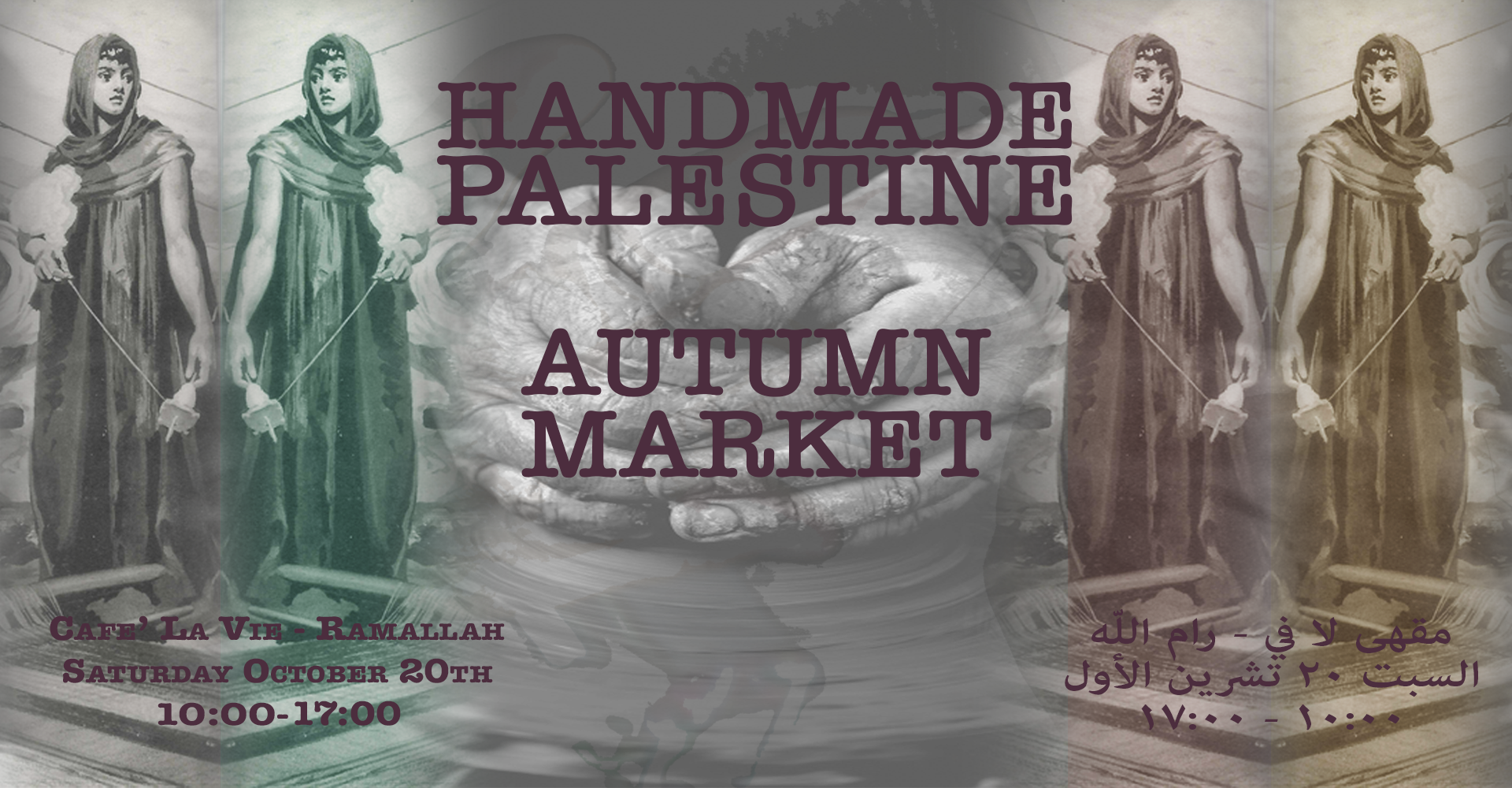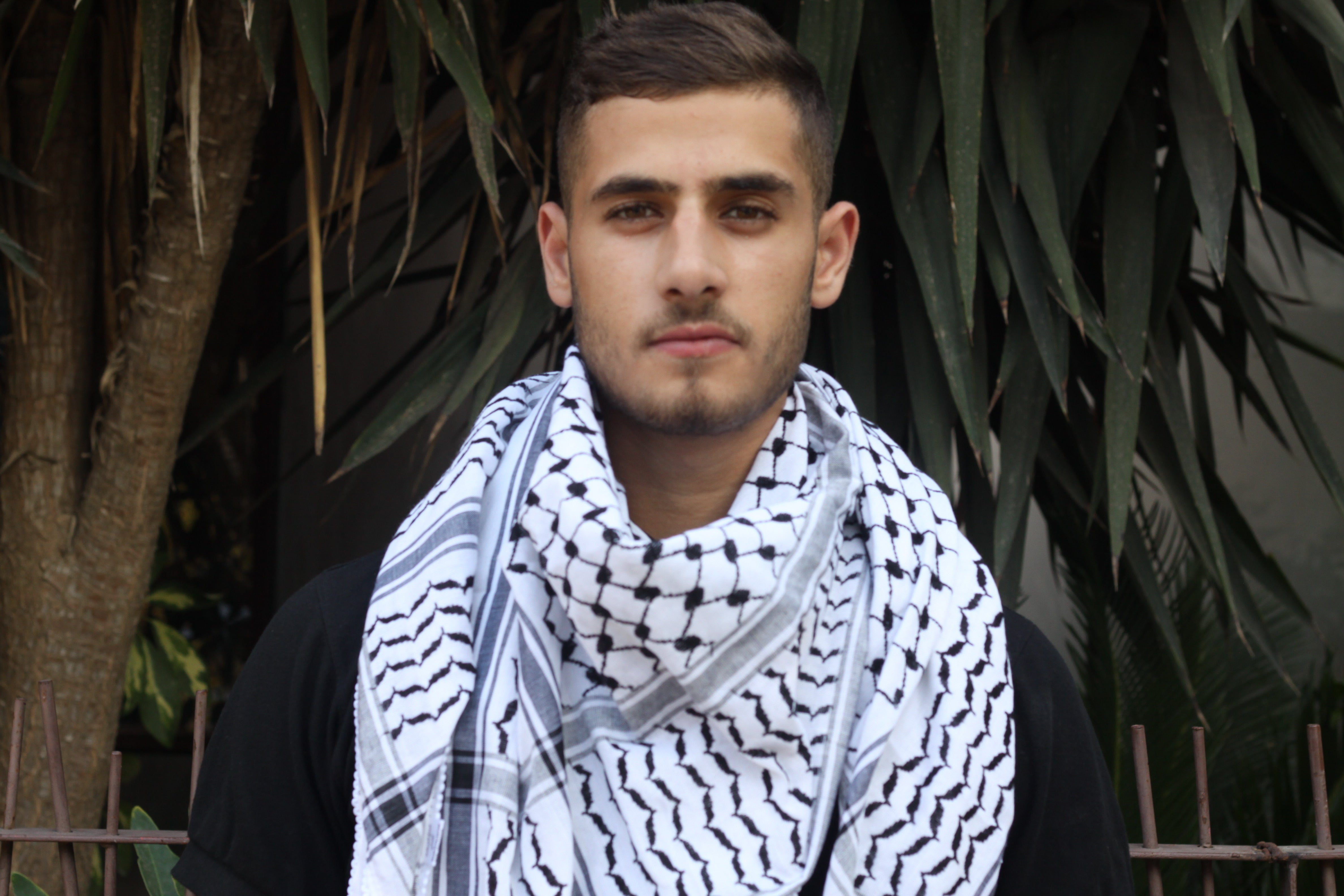Meeting the Artisans: Domari Society of Gypsies in Jerusalem
The Domari Society of Gypsies was established nearly 20 years ago, in 2000, by Ammoun Sleem with a vision to preserve the gypsy culture carried by the Dom (gypsy) people who came to Palestine over 500 years ago. The Society wanted to evidence their very existence here as a people, and promote their culture as a minority group in Occupied Palestine. The first community center was established in 2005. It was first located in the Old City of Jerusalem, later moving to its current location in Shu’fat which is a refugee camp east of the Old City.
Last month I went to visit the community, to interview Ammoun and learn more about the society and their community space. The center is located in an old house which we estimated is around 80 years old. Ammoun loves this space so much and discussed it as a vital part of the soul of the Gypsy Society. Once I entered the Center, I was greeted in the first room paintings. There were birds all over. I was welcomed by a dutch volunteer in her 60s, who has been working there for 2 years. “For two years?” I ask her in amazement. She responds, “Yes, with pleasure. I love this society and I love serving and spending time here in the Holy Land.”
Ten minutes later, Ammoun arrives. She directly heads inside to prepare arabic coffee, then shows me the backyard of the center, and introduces me to the cats who she is feeding and taking care of 3 times a day. There were so many of them! It really created an amazingly welcoming ambience.
The smell of arabic coffee that Amoun poured in the finjan, and the hospitality of this amazing woman reflected the Society’s space and vision. We started chatting, and I already felt at home. During the interview kids from the gypsy community were arriving for their Derbakkeh music class
Q & As from the Interview:
How do you preserve this community? How do you maintain its diversity? What sort of activities do you host?
We focus on the gypsy culture, we try to preserve and promote it. So far we have focused on women and children. We aim to promote [gypsies] as an ethnic groups that not many people know about, and to inform the public that we are a community that’s been here for hundreds of years.
Tell us more about the origin of the Society?
We are originally from India. A thousand years ago we moved out of India and migrated to different countries.Then we came to Palestine, some stories say we came during the Ottoman Rule, others claim it was during the Muslim Rule of Salah Al Din al Ayyubi.
What kind of activities do you host?
We focus on activities for women, and our aim is to make a bridge between gypsy culture and different parts of society. We consider the woman as the mother of society. We aim to make her active in the community, as well as inside her home.
We also make handicrafts, focusing on different designs and colors. We make gypsy style handicrafts rather than Palestinian embroidery. The gypsy style is identified by the lively colors we use. For example, we do not like to use the color black. We are “messy” and like to live in nature. We express our liveliness with colors, which embody the gypsy culture.
How and when did you start making handicrafts?
In the beginning it wasn’t our main focus. However, we realized that the handicraft tradition was disappearing. In order to bring it back and preserve it we started focusing on creating handicrafts rich with colors. In India the vivid and varied colors are the main elements of cultural tradition. We started making handicrafts in 2008, with small items such as gypsy earrings, because we think women should be beautiful. We made crochet earrings, and necklaces that express beauty, then we made different items such as pillows and purses, made from simple fabrics which are popular in India.
What’s your favorite piece?
I feel that each piece is unique. I’m connected to each piece because I know this piece is made by people who believe in their culture, and believe that this is something that expresses our identity.
Ammoun Sleem - The founder of the Domari Society of Gypsies
Any pieces you’ve done yourself?
I love earrings, so at the beginning many of the earrings were crafted by me.
How does the selling of handicraft sustain the society financially?
It helps a little bit. I want people to think about these charities and women who are making handicrafts, that they are simple people, not designers, that they are crafting something from their vision. They try to bring their roots into that piece. These crafts are not made in China, so I hope that many people appreciate their handicrafts and help these women, because I see that there is a lot of competition with places selling cheaper stuff. We’d like people to understand that this piece is made by women who invested a lot of time to craft a unique item.
What would you like to say to our customers who want to support you?
I want to say thank you, watching this video and hearing the story from us is a form of support. We hope that they look seriously into these pieces that are made by women who come from difficult backgrounds, so they understand that when a woman makes a piece, she’s doing it to make a living, for many of them it is economic support. So we hope that many women support it, and see it the way we see it, that it goes to a good cause, and after all they are using a beautiful piece made with pleasure by women who are trying to make a living but are struggling a lot. We love you all. Thank you.
After we were done with the interview, Ammoun insisted that I stay for lunch, so she prepared a gypsy dish, which is made of potatoes cooked with ground meat, bell peppers, and she added carrots to make the dish colorful (she loves color!), with rice on the side. While lunch was being prepared, I interacted with the children learning the Derbakkeh, their teacher, and the women.
That round table at lunch was something special, I thought after I went home that day. Sharing the food, the conversations, and the diversity of people from the community, we need more of that. Traditionally we are a collective society in Palestine; members of family, or neighbors living on the same street used to come together more often, helping and supporting each other in times of need. We need to go back to having more of these conversations? By sharing ideas, and everyday experiences and struggles, we are all resisting at the end of the day. Boosting this sort of collective is a step forward that allows us to highlight stories worth our attention, especially in terms of communities that are self sustained but are rarely thought about, for working moms who in many cases are the only caretakers of their families, for farmers who are fighting everyday to sustain their lands and sell their harvests, for artisans, artists and craftsmen and women.
Imagine this with us: a Palestinian collective or collectives. Can we all come together again?
Tell us what you think. Do you have stories of communities where you live? Would you like to become part of the conversation? Share you thoughts in a comment or contact us, we would like to take this to another level.
Make sure you check out the gorgeous gypsy jewelry by women from the Domari society.













Leave a comment
This site is protected by hCaptcha and the hCaptcha Privacy Policy and Terms of Service apply.